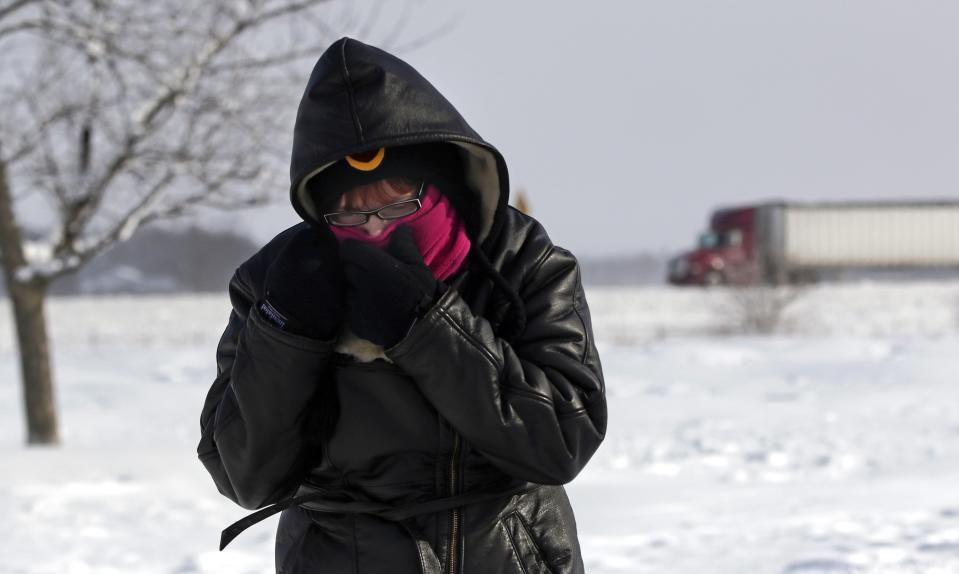Extreme cold weather won't chill economy, unless it lasts

A blast of icy, winter weather that grounded flights and caused havoc across much of North America on Monday likely won't leave a major economic impact unless it lasts much longer than expected, experts say.
A huge patch of cold Arctic air overhanging the continent is bringing extremely cold weather to much of North America on Monday and into Tuesday, with temperatures in some place more than 20 degrees below seasonal.
That's led to hundreds of flight cancellations across North America and left travellers scrambling for alternatives. A spokesperson for Pearson airport in Toronto told CBC News that just under 17 per cent of the flights in and out of the largest airport in the country are currently affected.
With supply chains interrupted, new costs related to the extreme weather and employees having difficulty doing their jobs, some individual businesses say they're starting to feel the hit.
"It's crazy, everything has slowed down," said Daniel Austin, a vice-president at industrial manufacturer MultiCam Canada in Concord, Ont. "Things are going to take longer and costs increase."
Austin said the main trouble MultiCam has faced is in its supply chains, trying to get certain parts to do work for customers. After trying to get a rare component from Minnesota, he said one of his customers switched to manual processing, which slowed down the entire project.
Absentee employees are also a problem. Austin guesses about one quarter of his staff have arrived late for work, with another quarter not managing to get in at all due to recent weather woes. "It's been one of the worst winters we've had that I can remember in the past few years," he said.
Others are doing just fine. Winter apparel retailer Mountain Equipment Co-op said the chilly weather has actually led to an uptick in business.
"It's been great. We really love it when it snows," said Cam Dempster, the manager of the retailer's store in downtown Toronto. "It gets people thinking about winter activities and an increase in warm winter apparel."
Dempster said sales for items such as hats, gloves and balaclavas are strong as consumers respond to the early onset of extreme winter weather.
But while there are individual winners and losers, people who keep an eye on the economy as a whole say the extreme cold snap is unlikely to have a lasting economic impact — unless it lasts.
"This cold weather front is likely to impact economic activity somewhat," Rockwell Global Capital economist Peter Cardillo told Reuters news agency Monday.
"It is an event that impacts people's lives but in an economic sense, it's not an event that impacts the trajectory of the economy," said Benjamin Tal, an economist with Canadian bank CIBC.
Tal says the major storm that blindsided most of the Eastern Seaboard in 1999 shaved about 0.2 to 0.3 percentage points off the economy at the time, and the impact was smoothed out on an annualized basis.
The devastating floods in Alberta seen earlier this summer had a similar impact, he noted — significant for the people involved, but not a major event, from an economic perspective.
"Economically speaking, this is a non-event," Tal said.
The frigid blast has yet to play out in an increase in heating costs, for example. "We have ample supplies of natural gas in storage," said Tom Saal, vice-president at energy trading firm FC Stone in Florida. "We're seeing very high cash prices of natural gas in some regions," but generally speaking, the supply and demand balance for the gas market is still steady so long-term outlooks haven't changed.
"The cash price of natural gas is seasonal and this is the season for it," Saal said in an interview
The spot price of natural gas climbed up to $4.32 US per million BTU on Monday, up slightly since late last week. That figure has risen from $3.80 in early December, but it generally tends to increase this time of year.

 Yahoo Finance
Yahoo Finance 